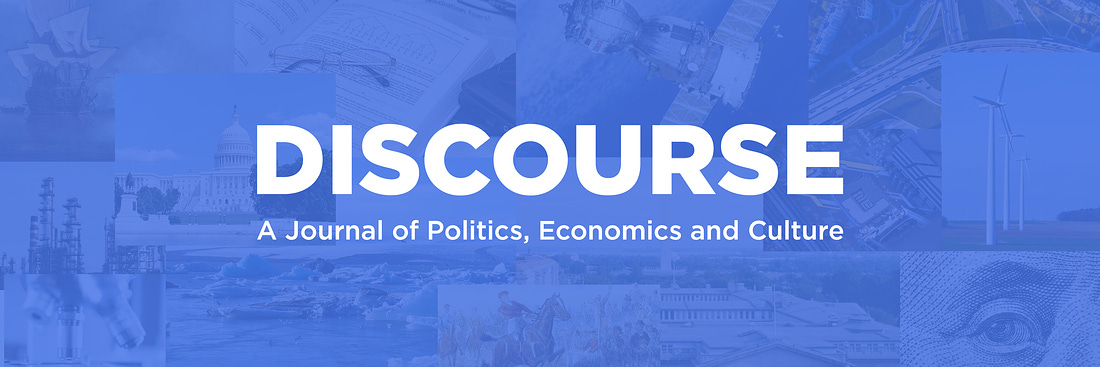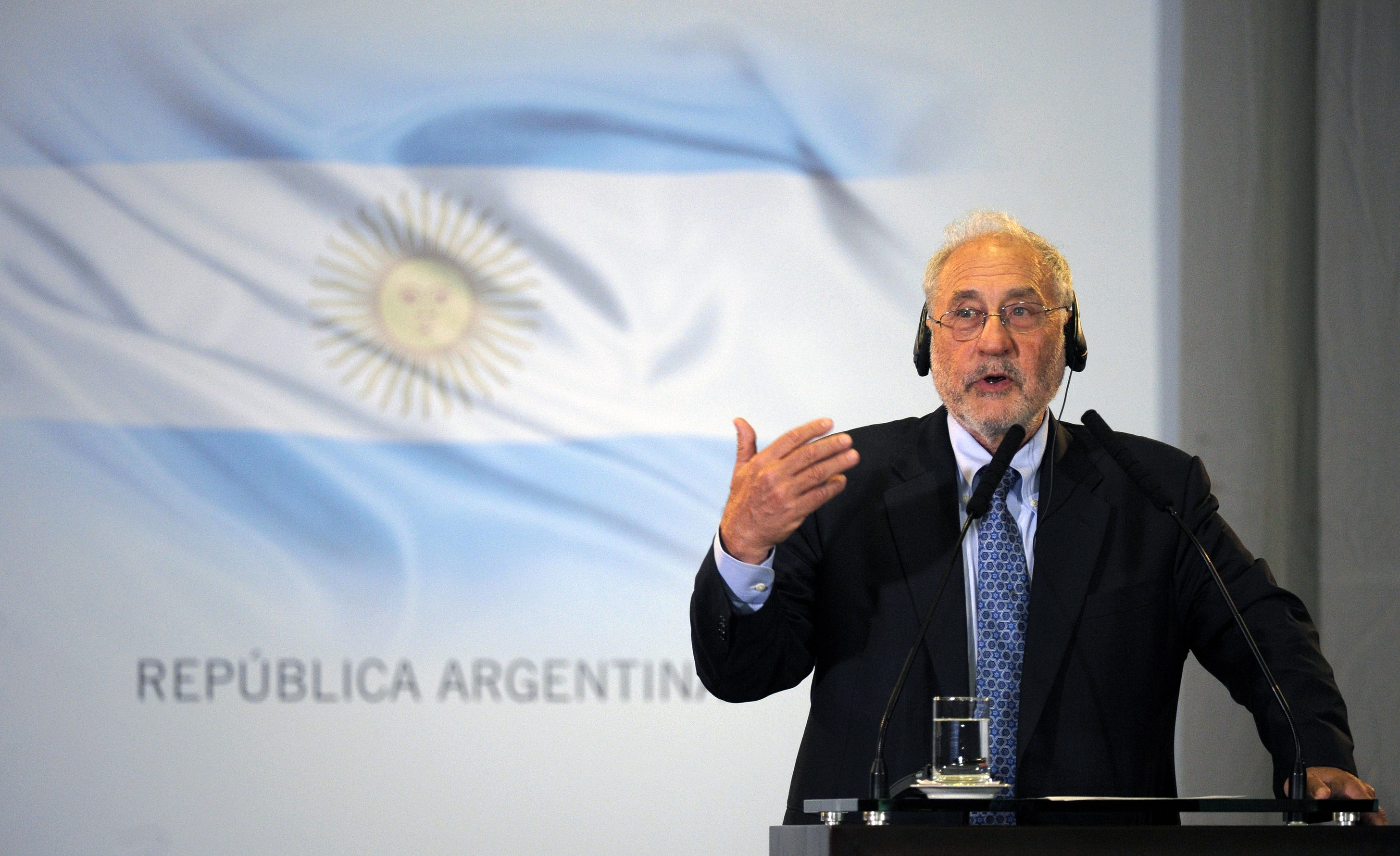|
 |
Joseph Stiglitz: Patron Saint of Latin America’s Radical Left
The Nobel Prize-winning economist has a troubling history with Latin American politics
In his prologue to Carlos Rangel’s 1977 classic essay “From the Noble Savage to the Noble Revolutionary” (published in English as “The Latin Americans: Their Love-Hate Relationship With the United States”), French philosopher Jean-François Revel argued that Latin Americans are not innocent of “making up and propagating their own myths.” The problem is greatly magnified, however, because they are “enormously encouraged in such counterfeiting when the figments of their imagination and their illusions about themselves are sent back to them duly authenticated, bearing the stamp of recognition bestowed by the high priests of the European intelligentsia.”
In this vein, no other foreign intellectual in the last two decades has done more to confirm the destructive myths of Latin America spread by left-wing radicalism than economist Joseph Stiglitz. Armed with a Nobel Prize, Stiglitz has given credibility to populist and socialist regimes throughout the region, validating their disastrous economic and social policies.
Political Activism in Chile and Argentina
In no other Latin American country has Stiglitz’s involvement with the populist left been more notorious than in Argentina. His relationship with the corrupt Kirchner dynasty has a long history that cannot be covered here, but one of the latest and most shameful episodes of his long-standing willingness to whitewash the Kirchnerite populist project occurred in 2022. In a column for Project Syndicate, Stiglitz went so far as to describe the policies of the Fernández-Kirchner government during the COVID pandemic as a “miracle.” Moreover, Stiglitz blamed all the country’s problems on President Alberto Fernández’s predecessor, Mauricio Macri (2015-2019). According to Stiglitz, “Given the mess that Argentinian President Alberto Fernández’s government inherited in late 2019, it appears to have achieved an economic miracle.” This “miracle” included high growth rates, employment recovery, higher taxes, growth in exports and debt restructuring.
What Stiglitz failed to mention was that most of this supposed “miracle” arose from the Fernández administration having closed down the economy during the pandemic. Naturally, when the government relaxed these controls, growth resumed at high rates due to the extremely depressed base of comparison created by the lockdowns. Stiglitz’s argument was thus nothing more than a numbers game that did not reflect the true situation. As economists Andrés Velasco and Eduardo Levy Yeyati put it in their response to Stiglitz’s column: “The oldest statistical trick in the book … is to label as growth what is just a rebound from a massive output dip. That is exactly what has happened in Argentina.” Moreover, in 2020, the Argentinian economy decreased by 10%, “the second-largest slump in the region, after Peru.” Argentina’s rapid recovery in 2021 was to be expected, although output still remained below pre-pandemic levels. In addition, inflation skyrocketed from 31% in 2020 to 51% in 2021, and the COVID-related poverty increase was the highest in the region.
Stiglitz’s involvement in the 2021 Chilean presidential election followed the same pattern of ideological alignment with radical left-wing populism. Shortly before the second round of the election, Stiglitz, along with other left-wing economists such as Mariana Mazzucato and Thomas Piketty, signed an open letter expressing support for socialist candidate Gabriel Boric in the following terms: “We see in the program of candidate Gabriel Boric that openness to the future, that way of creating a new economy that delivers these ambitious goals. Its objectives are viable and help to sustain democratic values. It is a modern strategy to mobilize a dynamic and sustainable productive agenda capable of achieving growth, equity, and development.”
In an interview with the newspaper El Mercurio a few weeks later, Stiglitz argued that Chile’s previous economic success was a neoliberal myth spread by the right and was in fact a failure created by the Chicago School of Economics and Milton Friedman. According to Stiglitz, 35-year-old Boric was the politician who could rid the country of neoliberalism, which would pave the way for levels of prosperity and equality never seen before. Stiglitz’s rant against market policies in this interview was matched only by his enthusiastic defense of far-left populism:
For decades right-wing politicians peddled a story about Chile, about the Chicago School reforms that made the country the ‘best’ in Latin America. Those who tell that story rarely mention the 1982 financial crisis triggered by Friedman's reforms. … Nor do they mention the predictable failure of the pension system, the divisions in the educational system and that Chile is among the most unequal countries in the OECD. All over the world, neoliberal and fundamentalist market reforms are being discredited: There has been less growth and the fruits of the little that does grow are shared unequally. Boric promises a new kind of stability but one that will require the cooperation of others.
As with the case of Argentina, when referring to Chile, Stiglitz distorted the facts to fit his ideological preferences. Indeed, if anything, Chile’s economic history under the free-market reforms implemented by the group dubbed the Chicago Boys was a resounding success. Following the failed Marxist dictatorial experiment of Chilean President Salvador Allende in 1973, these young economists who studied at the University of Chicago completely transformed the country’s economic institutions, creating a period of unprecedented prosperity. These institutions were preserved intact once democracy was reintroduced and a center-left coalition known as Concertation came to power. As a result of this continuity, in the words of Nobel laureate economist Gary Becker, “Chile became a role model for the whole underdeveloped world.”
None of this success is acknowledged by Stiglitz or President Gabriel Boric even though the data overwhelmingly supports it. Moreover, Boric openly promised to “bury neoliberalism,” which he blames for most of the country’s problems. His governing Apruebo-Dignidad coalition includes Chile’s Communist Party, which openly endorses the dictatorships of Nicaragua, North Korea, Cuba and Venezuela—something that did not bother Stiglitz. As was to be expected, Boric’s radical socialist government turned out to be disastrous for the Chilean economy.
Justifying Authoritarian Populism in Bolivia and Ecuador
That Stiglitz is willing to lend the weight of his academic credentials to radical socialist policies is nothing new. In 2006, when Bolivian socialist President Evo Morales (2006-2019) needed a leading international economist to give the nationalization of gas and oil fields the patina of credibility, Stiglitz was more than happy to oblige. In a column for Project Syndicate, Stiglitz lauded Morales’ decision despite the fact that it directly violated the contracts that the Bolivian state had negotiated with private companies.
“The world should celebrate the fact that Bolivia has a democratically elected leader attempting to represent the interests of the poor people of his country,” argued Stiglitz, adding that this was a “historic moment.” In the same opinion piece, Stiglitz fully endorsed Morales’ justification for his illegal measures, saying that for most Bolivians, the issue was “a matter of fairness” and that Bolivia was not being compensated fairly for its energy.
Stiglitz also visited Bolivia in May 2006 to meet with members of the Morales government. After the encounter, the headlines of the Bolivian press stressed Stiglitz’s endorsement of the regime’s nationalization program. Morales himself celebrated Stiglitz’s enthusiastic support of his populism in typical anti-American terms. On Twitter, Morales wrote: “It was reported that Nobel laureate in economics Joseph Stiglitz, who was visiting Bolivia, said that he supported the reforms of our process. Only the empire and international capitalist organizations reject the right of countries to manage their own heritage and natural resources.”
Although the Morales regime did not directly expropriate the operations of private companies—such as Repsol and Petrobras—it dramatically changed the conditions under which they operated in the country. As a result, Morales’ nationalization scheme as defended by Stiglitz not only failed to increase revenues for the Bolivian state, but it also destroyed the incentives for any additional foreign investments for the discovery of new oil and gas fields. Since 2006, there have been no new discoveries of gas fields, and production has gradually declined. According to former Bolivian minister for hydrocarbons and energy Álvaro Ríos, if no changes are made to Morales’ model, in 10 years Bolivia may be forced to import gas to meet the needs of its population.
Ecuador’s former President Rafael Correa (2007-2017), another representative of Latin American authoritarian socialism, was also endorsed by Stiglitz. In 2007, Stiglitz traveled to Ecuador to meet with members of the Correa administration to discuss economic policies. During his visit, the Nobel laureate fully endorsed Correa’s narrative that “neoliberalism” based on privatization and free markets had failed and advised the regime to continue its populist course.
Stiglitz went as far as proposing to gradually end the dollarization of the Ecuadorian economy in order to give greater power to the government—this despite the fact that dollarization has proved to be an anchor of economic and political stability by making it impossible for populist politicians such as Correa to degrade the value of the nation’s currency. As economist Lawrence White noted back in 2015, “Dollarization has been a clear success. The Ecuadoran monetary and banking systems have been much more stable and trustworthy (real bank deposits have grown considerably) since dollarization, and the economy has enjoyed better growth despite being ruled by a political party that speaks and acts in anti‐market tones.”
Praising Socialist Dictators: Chávez and Castro
When it comes to economic disasters, however, no country surpasses Hugo Chávez’s Venezuela, currently ruled by dictator Nicolás Maduro. From his early days as president, Chávez made clear that he was going to start a revolution inspired by so-called 21st-century socialism or “Bolivarian socialism.” Adhering to these ideas, once in power, the former Lieutenant Chávez engaged in a massive program of expropriation and nationalization as well as blatantly populist and authoritarian policies. Chávez’s populism was facilitated by the explosive rise in oil prices, which increased from around $11 per barrel when he was elected in 1998 to $88 in 2008 and over $100 in 2011. This dramatic increase in the price of oil meant that between 1999 and 2014 Chávez controlled almost $1 trillion.
Stiglitz knew this but opted to credit Chávez’s populist policies for the Venezuelan boom. In his 2006 book, “Making Globalization Work,” Stiglitz argued that left-wing Latin American governments have “often been castigated for being populist, because they promise to bring education and health benefits to the poor, and to strive for economic policies that not only bring higher growth but also ensure that the fruits of that growth are more widely shared.” He went on to write that “Venezuelan President Hugo Chávez seems to have succeeded in bringing education and health services to the barrios of Caracas, which previously had seen little of the benefits of that country's rich endowment of oil.”
But Stiglitz’s efforts to support the Chávez socialist and authoritarian experiment did not end there. In 2007, he traveled to Caracas to meet with Chávez and praise him personally for the great work he was doing on the economic and public policy front. During his visit, Stiglitz declared that the country’s economic growth had been impressive, adding that the regime had to make sure that growth was sustainable once oil prices dropped. At the same time, he celebrated the massive populist redistribution of the oil income, claiming that it was “not a revolutionary but an innovative goal.”
When it comes to socialism, Stiglitz’s disregard for economic freedom and liberal democracy seems to know no limits. Nowhere was this more clearly shown than in his visits to Cuba in 2002 and 2016. He reflected publicly about his 2002 meeting with dictator Fidel Castro in the following terms: “I vividly recall the visit I made to the Association of Cuban Economists and Accountants when this organization invited me to a celebration of my birthday on Feb. 9 and the amazement I felt when Fidel heard it was my birthday and congratulated me personally. It was extraordinary for him to be there.” Stiglitz also praised Cuba’s successes in healthcare and educational development. Moreover, he argued that Cuba was economically prepared to face the technological changes that were taking place in the global economy.
As was the case with Kirchner, Boric, Morales, Correa and Chávez, Stiglitz served as a propagandist for Cuba’s totalitarian regime, which for 60 years has brutally oppressed the Cuban people while condemning them to a life of economic misery. One of the main lies spread by the regime is precisely what Stiglitz celebrated: the myth that healthcare on the island is world class. In truth, many of the statistics of Cuba’s healthcare system are misleading. The proportion of doctors as a share of the population, for example, is one of the highest in the world. However, half of them are sent abroad as a source of revenue for the dictatorship. Overall, Cuba’s program, which amounts to the enslavement of doctors, generates around $7 billion every year for the regime. Meanwhile, doctors on the island earn $50 per month.
The healthcare situation for Cubans on the island is dire. In 2010, The Wall Street Journal noted that Cubans must bring their own syringes, towels and bed sheets when they go to hospitals. Women avoid gynecological exams to prevent infection caused by unhygienic equipment and practices. And as far as the quality of the doctors is concerned, those who flee to the United States find that their training is often not at the level needed to earn a license to practice medicine. As a result, many become nurses. Other researchers have found that Cuba’s true infant mortality rate is at least twice the regime’s official number.
Instead of trusting official statistics from a totalitarian regime, it would have been better if Stiglitz had visited the actual medical centers where Cuban people receive treatment to see for himself how the policies he praised were working. He could have done the same with educational institutions, whose socialist excellence is nothing more than another myth crafted by the Cuban dictatorship. But a fact-check might hardly seem necessary for someone whose radicalism could even impress Fidel Castro himself. On the occasion of Stiglitz’s 2002 visit to Cuba, Castro introduced Stiglitz to Spanish journalist Ignacio Ramonet, a hard-core communist, saying, “He is an economist and an American, but he is the greatest radical I have ever seen. Next to him, I am a moderate.”
Unfortunately, Stiglitz’s radicalism has been the driving force behind numerous endorsements that, as Revel cautioned, act as “stamps of authenticity” for the catastrophic socialist and populist lies that Latin Americans tell themselves. Even more unfair is the fact that someone like Stiglitz, a patron saint of anti-democratic, socialist leaders, pays no price for the deranged ideological experiments he attempts to legitimize.
You’re currently a free subscriber to Discourse .

